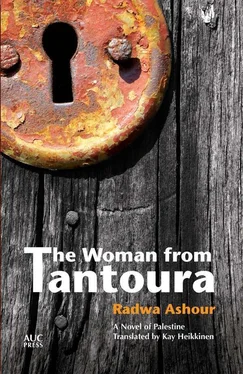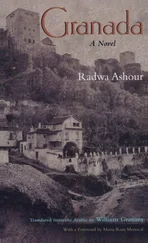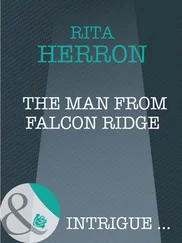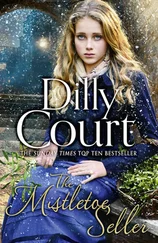“I saw them with the others. The young men they took from al-Furaydis to bury those who were killed told us that they buried them with the others. They said that they buried 120, two or three days afterward. They said that the others had been buried before that, the day they took over the village.”
“Do you remember the day we left in the boat?”
“I remember.”
“While we were on the way I saw corpses. I saw someone floating in the water. I yelled and ran to my father, pointing with my arm. But my father put his hand on my shoulder and said, ‘He died days ago.’ I shuddered violently, and my father noticed. He said, ‘You’re a man now, Ezz, aren’t you a man?’ I didn’t cry. I didn’t cry even when I saw the bodies of others floating on the surface of the water. I asked the captain of the ship and he told me that many boats sank on the way because they were small and were carrying more than their capacity, or because the captain of the boat was not skilled enough. I used to like to ride in boats and go sailing in them but I don’t like them any more, not boats and not the sea and not traveling.”
“Do you like your new school?”
“Something else happened in the boat.”
“What happened?”
“A woman began to scream. Then her screaming got louder, and I heard someone say that she was having a baby. Then my mother came and said, ‘Give me your knife.’ The red knife that Amin gave me, do you remember it?”
“The penknife?”
“Yes. I didn’t understand why my mother was asking for it. I asked her and she said, ‘We need it for the birth.’ I thought they were going to use it to cut open the woman’s belly, so I started shivering. I crouched down and fought back tears so my father wouldn’t scold me.”
“And then?”
“I didn’t see anything because the women were surrounding the woman who was screaming and screening her with their bodies. After a while we heard the sound of the baby crying. The women said, ‘Thank God she came through safely.’ I saw the baby wrapped in my mother’s shawl. When she returned the knife to me I hesitated to take it. She was surprised, and then laughed and said, ‘We cut the umbilical cord with it.’ I put it in my pocket but since we got to Sidon I’ve kept it hidden, and I don’t use it any more. I don’t want to.”
I said, “Let’s walk along the sea.”
I put my arm around his shoulders and we walked. The silence lengthened, and then I asked him again about the school.
“I like it because it has a soccer field.”
“You used to like school because you were the best.”
“I’m not the best any more, because the teacher calls on me suddenly and I don’t know what he’s been talking about or what the question is. If he repeats it I answer, and if not I stand tongue-tied in front of him, and he scolds me and the boys laugh at me. At first they laughed, but now they’ve become my friends. They whisper to remind me of what he was saying or to help me answer and I try to catch what they’re whispering but I can’t make it out if I’m upset. But when we play soccer the game takes over and I don’t think about anything but the ball as it moves from one side to the other. I watch it between the feet of the players or I take off toward it when it flies and I fly too, to catch up with it. Soccer has introduced me to all the boys in the school and we’ve become friends.”
“I don’t have girlfriends any more. My uncle says that most of the people of the village went to Syria, and we don’t yet know where they live. I don’t know if I’ll ever see them again.”
“No problem.”
“Why?”
He said, “You’ll make new friends, and your old friends will still be your friends when we go back home. My friends here didn’t know anything about the village so I told them. When we go back they’ll come to visit me. I’ve gotten to know Sidon and they’ve gotten to know Tantoura, and when they visit it they’ll get to know it better.”
“But when I make friends here I’ll leave them when we go back.”
“When things go back to the way they were, you’ll take the train or a taxi and go to them, and they will also visit you there. And who knows, Yahya might work in Jerusalem or in Lid so you’ll live there, and you’ll have friends in Jerusalem and in Tantoura and in Sidon and maybe in Haifa and Beirut when we go to visit Amin, or in Cairo if Yahya takes you there. The world will open up, and you’ll have family and friends and acquaintances everywhere.”
I wasn’t comfortable with what he said about Yahya. I hadn’t brought his image to mind or thought of him since we left the town.
Now I look back from afar: A boy and a girl crouching on the sand. Only God knows what’s waiting for them, what secrets the unknown future holds. Two youngsters on a rugged shore with the sea before them, its waves continuously rising and retreating, rising again and breaking. A strong sun tanning their bodies as it hangs suspended above, like destiny. They sit next to each other by the Sidon sea, talking in low voices as if they were adults. I look from afar: two youngsters by the sea of Tantoura, as if they were puppies. The girl runs and the boy runs after her, she jumps and he jumps. The wave lifts them and covers them; they swim like fish. They race and jump and quarrel. Their voices rise, spreading their words and their ringing laughter. They get a little bigger and then bigger still, and they can’t swim together — he swims with the boys and she swims with the girls. They meet at home, their heads together looking at the same book, then one of them suddenly jumps up as if stung by a scorpion. They’ve disagreed. The shouting begins and rises and is only silenced because they have become enemies, each one swearing not to speak to the other as long as he lives. That’s a short time, an hour or two or half a day, if it’s really long. Afterward they make up because one of them has forgotten that they quarreled, or because one of them wants something from the other that makes him ignore the dispute.
She looks from afar. She sees him under the June sun along the sea of Sidon after the Israelis have taken it over. What he did not live through with her on the sea of Tantoura forty years before he now lives through on the sea of Sidon. It’s as if history is repeating itself, although the scene is larger. The people are more, many more. The soldiers are more. The weapons and the armored cars. The burlap bag is reincarnated, one here and another there and a third and a fourth, each looking through the two holes in the bag that covers his head and pointing. Whenever he points the same shudder passes through the ranks, since everyone knows and has known for a long time that the ones pointed out by the burlap bags will now go in a long line to execution or to the prison camp. Not in Zirchon Yaacov or in Ijlil or Sarafand but to someplace here in the heart of Sidon, or in the heights overlooking it.
Ezz will sneak into Beirut. For a moment she won’t recognize him, because of the sudden whiteness of his hair or for some other reason. He will sit beside her so he can hear more about his brother, so she can hear from him what happened in Sidon. He will carry the girl, asleep on Ruqayya’s knees, to her bed, and they will stay up talking until dawn breaks. A widow and an old man, whose hair has turned completely white in four months and four days. A boy and a girl … she looks from afar.
9
The Children’s Indictment
The children say that I was a stern mother, they say their father was more affectionate with them. I repeat disapprovingly, “More affectionate?” They recall the events, and confirm what they say, “You got involved in every detail. You would insist that we be angels!”
Читать дальше












